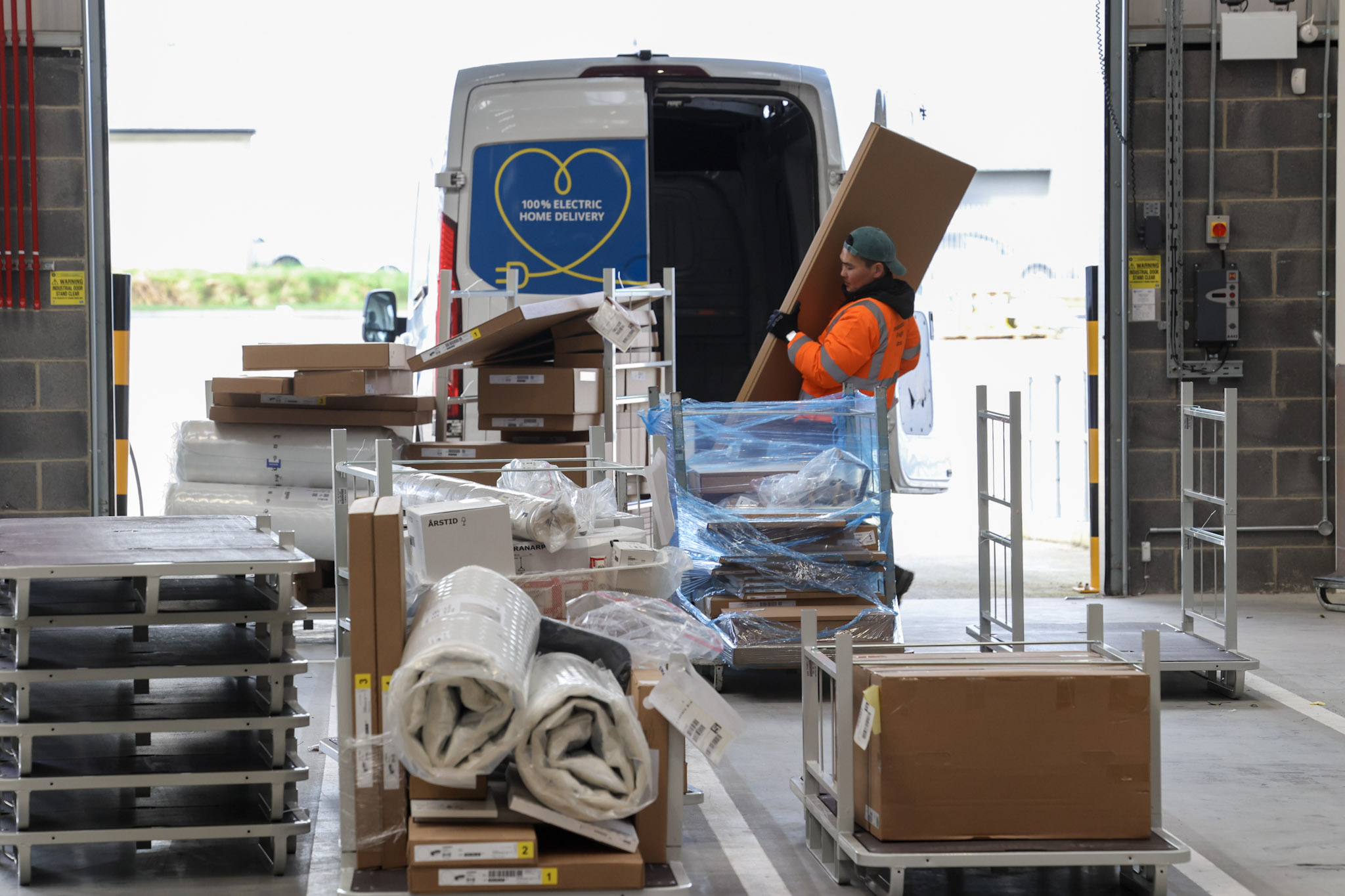Whilst the nature of Britain’s political status in Europe remains an issue of some debate, the dominant position which it maintains over its Continental partners when it comes to online shopping is beyond dispute, according to Orla Shiels, general manager of Parcel Motel – the network of locker locations from Irish carrier Nightline. What is perhaps less acknowledged is the degree to which Ireland’s consumers have made it a significant e-commerce force in recent years.
Despite having a much smaller population than many of the European Union’s 27 other states, the Republic’s new-found passion for internet retail means that, according to the most recent statistics, it doesn’t only spend more on average than anyone except Britain but is even growing more quickly as an e-commerce market than its neighbour across the Irish Sea.
It might come as no surprise, therefore, to find that it’s not Irish eyes which are smiling but those of UK retailers who recognise the potential for increased sales by appealing to customers here.
However, some risk undermining their efforts by failing to address inequalities in how Irish and British consumers are treated when it comes to the critical delivery element of the e-commerce equation.
People buying online in the UK have distinct advantages in terms of the range of goods which they are presented with and, importantly, how their purchases are delivered.
Shoppers in London, Cardiff and Edinburgh are regarded jealously by counterparts in Dublin, Cork and Waterford for their ability to take advantage of a broad range of free, next-day and alternative deliveries.
On each of the four key issues affecting attitudes to e-delivery, Ireland’s consumers lose out.
Although divided from the UK mainland by a 30-mile stretch of water or from Northern Ireland by the width of a border, the Republic is treated as a much more distant territory when it comes to the cost of shipping.
By some quirk of carrier tariffs, consumers are often required to pay steep surcharges on a par with individuals in Germany, France or Spain for consignments dispatched direct to addresses in the Republic.
The breadth of delivery options available to Irish shoppers are commonly reduced to a simple shipment to someone’s front door. If they’re not – or can’t be – at home, then collection involves a journey to the local post office.
For working e-consumers, that often presents a terrible inconvenience and a possible ticking off from the boss as lunchtime post office closures necessitate time away from someone’s desk to pick up a purchase before the end of the day.
Prior to Nightline launching Parcel Motel in 2012, the only alternative was a trip to a local courier depot. The convenience, low cost and speed has seen Parcel Motel become a delivery method of choice for more than 100,000 shoppers.
Speed of delivery highlights another iniquity. Apart from the clothing and home brand Next, next-day consignments are virtually unheard of.
Finally, shoppers in Ireland have limited opportunities to make free returns. Again, the trusty post office – and a hefty fee – is generally depended upon.
It’s no wonder that current arrangements have been described as acting almost as a brake on attempts on e-commerce sales. Retailers are fond of underlining their commitment to one of the fashionable concepts of the day, ‘UX’ (short for ‘User Experience’) but, without change, their delivery practices are only likely to lead to a very unsatisfying customer ordeal and sales being taken elsewhere.
I should point out that there are important differences between consumers here and in the UK. Irish shoppers have historically not been accustomed to the idea of free delivery. They expect to pay something to get their goods but just don’t want to feel as though they’re getting a raw deal.
For example, people using their local Parcel Motel are paying upwards of €3.95 per package on top of the retailer’s delivery rate, depending on the size of what they’ve bought. That’s considered acceptable because it’s still much less than a direct shipment.
A number of retailers have also tapped into the system’s potential for offering free returns. They understand that even though the mechanics of shopping have changed with the digital age, the changing room mentality has remained.
Research has shown that consumers who can buy and try at home without the need to pay for returns are likely to order more items.
Instead of handling many individual returns and the multiple costs involved, it’s possible to consolidate goods being sent back to retailers into a single shipment so that it doesn’t become a drain.
One major UK e-tailer which has embarked on the free return model for Ireland has reported a “considerable” rise in trade with the Republic.
The last five years have provided plentiful evidence of Ireland’s emergence as a viable e-commerce market. With a new postcode system almost upon us to help make deliveries even more efficient, addressing the consignment conundrum can avoid consumers stopping their shopping and might even make the UK’s buyers green with envy.










